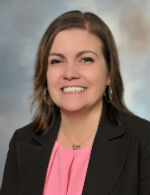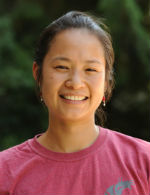 Karen L. Archambault, Ed.D. currently serves as Executive Director Enrollment Management at Rowan College at Burlington County where she oversees recruitment, financial aid, the registrar's office as well as several retention programs for high risk students. Prior work included recruitment, advising programs, and retention as well as new student programs and faculty support. While Dr. Archambault’s experience spans a wide range of functional areas her research interests are in transfer student preparation and retention and in cross-campus efforts to support student success. She regularly writes and presents for NACADA and currently serves as a Representative to the Council for the Commissions and Interest Groups Division.
Karen L. Archambault, Ed.D. currently serves as Executive Director Enrollment Management at Rowan College at Burlington County where she oversees recruitment, financial aid, the registrar's office as well as several retention programs for high risk students. Prior work included recruitment, advising programs, and retention as well as new student programs and faculty support. While Dr. Archambault’s experience spans a wide range of functional areas her research interests are in transfer student preparation and retention and in cross-campus efforts to support student success. She regularly writes and presents for NACADA and currently serves as a Representative to the Council for the Commissions and Interest Groups Division.
 Yung-Hwa Anna Chow is the Assistant Director of the College of Arts and Sciences, General Studies and Advising Center, at Washington State University. Her accomplishments include writing for Academic Advising Today and serving as a member of the NACADA Research Committee and Finance Committee. She regularly presents at regional and annual conferences and served as a webinar panelist on the topic of Advising International Students from China. She is the recipient of a 2011 NACADA research grant and spent that summer in Shanghai, China, conducting research for the project. In 2012-13, she served as Chair of the Global Engagement Commission for NACADA, and in February 2013, she led a second NACADA webinar on advising international students.
Yung-Hwa Anna Chow is the Assistant Director of the College of Arts and Sciences, General Studies and Advising Center, at Washington State University. Her accomplishments include writing for Academic Advising Today and serving as a member of the NACADA Research Committee and Finance Committee. She regularly presents at regional and annual conferences and served as a webinar panelist on the topic of Advising International Students from China. She is the recipient of a 2011 NACADA research grant and spent that summer in Shanghai, China, conducting research for the project. In 2012-13, she served as Chair of the Global Engagement Commission for NACADA, and in February 2013, she led a second NACADA webinar on advising international students.